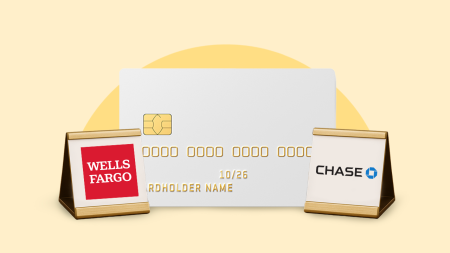Whether you’re a freelancer, self-employed or own a small business, you should probably have a business checking account. These are special bank accounts designed with businesses in mind, offering services targeted at business owners rather than individuals.
It can be tempting just to use your personal checking account for your company, especially if you’re just starting out, but it’s best to open a dedicated business account. A business bank account is especially important for LLCs, C corps and S corps to keep the liability protection that these business structures offer. But having one also helps sole proprietors and partnerships manage business finances and simplify accounting.
Here’s more on the top five reasons to open a business checking account.
1. Lessen tax headaches
One of the realities of running a small business is filing business taxes. Very few people enjoy organizing and filling out tax paperwork, so anything you can do to make your taxes easier is a good thing.
When you file business taxes, you need to determine your business’s income and expenses. Using your personal bank account for your business means sorting through hundreds or thousands of transactions to determine which ones are associated with your business
At best, you miss out on various business tax deductions that could lower your taxable income. Deductions that may be difficult to weed out from personal transactions include:
- Business meals and entertainment
- Office supplies and equipment
- Business travel expenses (gas, flights, hotels, rental cars)
- One-off professional services expenses (legal counsel, virtual assistant)
- Education and training (books, courses)
At worst, you accidentally mark personal expenses as business ones and need to pay back taxes, interest and possibly penalties after an IRS audit.
Neither situation is ideal and can be avoided by keeping your personal and business finances separate. It’ll also be much easier to keep track of your business’s expenses and performance while making life easier during tax time.
2. Helps you qualify for loans to grow your business
Keeping your business finances separate can also help you qualify for loans for your company and yourself.
People borrow money for a number of reasons. You might want to use a loan to help expand your business, or you might need a mortgage to buy a home. Lenders look closely at your finances when you apply for a loan. Having your business and personal finances mixed can make life complicated.
“For things like home or auto loans, self-employed persons often have to go to greater lengths than W-2 employees to document not only their earnings, but the consistency of those earnings,” says Brenton Harrison, a financial advisor at Tennessee-based New Money, New Problems.
“Unfortunately, many independent contractors have their business revenues deposited into their personal bank accounts. This commingling of deposits and transactions can make it difficult for lenders to make a distinction between your household finances and the finances of your business,” he explains.
If lenders can’t get an accurate picture of your finances, you’re less likely to qualify for a loan. This includes SBA loans, which are government-backed small business loans that generally have more relaxed eligibility requirements and better interest rates and repayment terms than other bank loans.
3. Reduces your personal liability for your business
Depending on your company type, a major benefit of keeping a separate account for your business is liability, explains John Huntinghouse, vice president of marketing at TAB Bank. “Business checking accounts are so important because they separate your personal transactions from your business ones. There are tax and liability reasons as to why you would want to open a business checking account.”
For example, if you run a limited liability company, or LLC, someone who sues your business cannot access your personal funds. They can only take money from your business.
But if you don’t have a separate bank account for your business, you may be seen as “piercing the corporate veil.” If this happens, you may lose the liability protections offered by your LLC and be personally liable for your company’s debts. Creditors and plaintiffs could go after your personal assets, such as your home, bank account or car, to pay your business debts and liabilities.
What if you’re a sole proprietor?
Maybe you’re a freelancer, microbusiness, life coach or consultant. You won’t lose your liability protection, since that’s not a feature of a sole proprietorship business structure. But mixing accounts still makes it more challenging to manage, defend and separate your financial activities if you’re sued or audited.
Say, for example, you’re a graphic designer and missed a key client deadline. The client lost a big contract because of it and is suing you for $15,000 in damages.
Even if you have a valid defense, messy records may weaken your credibility as a professional, make it harder to find and prove business expenses for the project and cost you more to defend your case as you spend additional money on legal and accounting fees to sort through records.
4. Empowers your employees
If your business starts to grow, it can be difficult to handle all of the banking on your own. Depositing cash, mailing checks and paying your suppliers can take up a lot of time that could be better spent running and growing your business.
If you have employees that you trust, you can delegate some of these tasks to them if you have a business checking account. You can give these employees the access required to accomplish basic tasks without having to give them full control over your personal checking account.
For example, you might be able to:
- Assign user roles to limit access to tasks and data
- Authorize deposits only
- Set transaction limits for debit cards
- Monitor account activity through unique individual IDs
- Grant individual access to your Merchant Services account
You can also give access to service providers, such as accountants, to make it easier for them to provide services to your business.
5. Provides you with business-focused features
Personal checking accounts are designed for individuals, so they have features designed for everyday people. Similarly, business checking accounts are designed for businesses, so banks focus on adding features and perks that will benefit business owners.
For example, business checking accounts may have features that let you easily accept credit and debit card payments. They may also include payroll software built into the account, integrate with bookkeeping software or partner with popular business service providers that let you get a discount on their services.
These features can help your business save money and operate more efficiently. However, some business services will come with additional fees. As you compare business checking accounts, ask what fees are associated with the account.
How to choose the right business checking account
Choosing a business checking account is similar to choosing one to use in your personal life. You’ll want to look at things like the account’s fee structure and the features it offers.
Besides verifying a bank is FDIC- or NCUA-insured, look for benefits like:
- Lower fees for banking (maintenance, cash deposit, wire transfer and excess transaction fees)
- Lower fees for premium features
- Debit card reward programs
- Reporting activity to business credit bureaus to help build business credit
- 24/7 customer support or dedicated business support lines
- Invoicing or payment tools
- Budgeting and cash flow forecasting tools
- Accounting software integration with platforms like QuickBooks or FreshBooks
- Mobile banking with full functionality
Focus on the account features that fit your business needs. If you run a cash-heavy company, an online business checking account that doesn’t accept cash deposits won’t be the right choice for your business. If you do a lot of your business’s spending with a debit card, an account that offers debit card rewards could be a boon for your company.
What you’ll need to open a business account
Banks will need to verify your personal and business information before you can open a business account. Banks may ask for:
- Two forms of ID
- Tax Identification Number (TIN), Employer Identification Number (EIN) or Social Security number (for sole proprietorships)
- Business formation documents
- Ownership agreements
- Business license
You might be able to choose from several types of documents for verification. For example, LLCs might only need to provide one business formation document, such as the Articles of Organization. A sole proprietor might be able to give a fictitious name certificate if their business doesn’t use their last name and they don’t have a business license.
— Bankrate’s Marcos Cabello and Lorraine Roberte contributed to an update of this story.
Read the full article here









